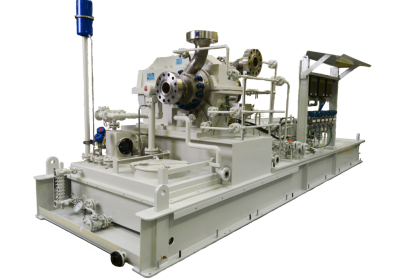What makes Chemical Contract Manufacturing an Answer to Chemical Manufacturers Challenges
Description
In today’s globalized economy, businesses often seek efficient ways to produce goods without the burden of owning and operating their own manufacturing facilities. Chemical Contract manufacturing provides a solution by allowing companies to outsource production to specialized manufacturers. In this article, we look into the complexities of contract manufacturing, exploring its benefits, drawbacks, and essential considerations.
What is Contract Manufacturing?
Contract manufacturing is a strategic business arrangement that allows companies to leverage the expertise and capabilities of specialized manufacturers. These contract manufacturers are well-equipped to manage the entire production cycle, starting with the procurement of raw materials from trusted suppliers. They are responsible for ensuring the timely arrival of these materials, their quality inspection, and efficient inventory management.
Once the raw materials are in their possession, contract manufacturers meticulously oversee the manufacturing process, including the design and engineering of products, if necessary. They utilize their state-of-the-art facilities, equipment, and skilled workforce to ensure the highest quality standards are met during production. This includes adhering to specific quality control measures, adhering to industry regulations, and conducting rigorous testing and inspections to guarantee the final product’s integrity.
Beyond production, contract manufacturers are often involved in packaging, labeling, and, in some cases, even distribution. Their comprehensive services streamline the supply chain, reduce lead times, and optimize production costs. By entrusting these responsibilities to contract manufacturers, companies can focus on core competencies such as marketing, research and development, and expanding their market presence, ultimately leading to enhanced competitiveness in today’s dynamic business environment.
Contract Manufacturing Agreements and Arrangements
When embarking on a contract manufacturing partnership, clarity and understanding are paramount. This is where contract manufacturing agreements and arrangements come into play. They serve as the foundation upon which the entire collaboration is built, ensuring that both parties are aligned in terms of expectations and responsibilities.
Agreements
Agreements serve as the legal and operational framework for the partnership between the hiring company and the contract manufacturer. These written contracts detail various crucial aspects, such as:
- Production Terms: Agreements outline the scope and scale of production, specifying the types and quantities of products to be manufactured. This clarity helps prevent misunderstandings and production bottlenecks.
2.Quality Standards: Quality is non-negotiable in contract manufacturing. These agreements establish clear quality control measures, inspections, and standards that the contract manufacturer must adhere to, ensuring that the final product meets the desired specifications.
- Pricing: Pricing terms are vital to determine the cost structure of production. Agreements specify how costs are calculated, including materials, labor, overhead, and any additional fees or incentives.
4.Delivery Schedules: Timeliness is critical, especially in industries with strict deadlines. Contracts stipulate delivery schedules, ensuring that finished products are delivered to the hiring company on time and in accordance with their production needs.
5.Intellectual Property Rights: Protection of intellectual property is a central concern. Agreements should clearly define how proprietary information and technology are handled, ensuring that the hiring company’s trade secrets remain confidential.
Arrangements
Within contract manufacturing, there exist different types of arrangements, each tailored to specific needs and circumstances. Two common arrangements are **toll manufacturing** and **turnkey manufacturing**:
1.Toll Manufacturing:
In a toll manufacturing arrangement, the contract manufacturer essentially rents out its production facilities and equipment to the hiring company. The hiring company provides the raw materials and its proprietary formula or recipe, while the contract manufacturer takes care of the production process. This arrangement allows the hiring company to maintain control over the product’s formulation while benefiting from the contract manufacturer’s production expertise.
- Turnkey Manufacturing:
On the other hand, **turnkey manufacturing** represents a comprehensive, end-to-end solution. Here, the hiring company entrusts the contract manufacturer with every aspect of production, from initial design and engineering to sourcing raw materials, manufacturing, and even packaging and delivery. This approach provides the hiring company with a hassle-free, one-stop solution, allowing them to focus on marketing and distribution while the contract manufacturer handles the rest.
The choice between these arrangements depends on factors such as the hiring company’s level of control, expertise, and the complexity of the products being manufactured. Regardless of the selected arrangement, a well-crafted contract manufacturing agreement remains essential to ensure a smooth and mutually beneficial partnership.
Advantages of Contract Manufacturing
Contract manufacturing has become a pivotal strategy for businesses seeking to optimize their production processes. By entrusting specialized manufacturers with the responsibility of producing their goods, companies can reap a multitude of benefits that contribute to their overall success.
Cost Savings
One of the most compelling advantages of contract manufacturing is **cost savings**. When companies outsource production, they can avoid substantial capital investments in manufacturing facilities and equipment. Instead, they can allocate these financial resources to other critical areas of their business, such as research and development, marketing, or expanding their product lines. This financial flexibility not only enhances their overall efficiency but also provides a competitive edge in today’s fast-paced markets.
Expertise
Contract manufacturers, often referred to as CMs, are industry experts in their own right. They have honed their skills and knowledge over years of specialization, making them invaluable partners for companies. Their in-depth understanding of specific industries or manufacturing processes allows them to offer a level of **expertise** that might not be readily available in-house. This expertise can lead to improved product quality, enhanced production efficiency, and the ability to adapt to evolving industry trends and technologies.
Scalability
Scalability is a significant advantage of contract manufacturing that allows companies to remain agile in response to changing market demands. With the ability to easily adjust production volumes based on fluctuations in demand, businesses can avoid overproduction or underproduction, thereby optimizing resource allocation. This flexibility is particularly advantageous in industries characterized by seasonality or rapidly changing consumer preferences. Companies can meet market demands efficiently without the need for extensive infrastructure investments, ensuring that their products remain competitive and relevant.
Disadvantages of Contract Manufacturing
While contract manufacturing offers numerous advantages, it is not without its challenges and potential drawbacks. Businesses must carefully consider these disadvantages to make informed decisions when pursuing such partnerships.
Quality Control
One of the primary concerns associated with contract manufacturing is **quality control**. Companies must place a significant level of trust in the contract manufacturer’s quality control processes. While reputable CMs uphold stringent quality standards, there is always a risk of lapses in communication or deviations from expected quality levels. This can raise concerns about the **consistency** of the final product, potentially affecting the brand’s reputation and customer satisfaction. Vigilant oversight and clear communication between the hiring company and the contract manufacturer are essential to mitigate this risk.
Dependency
Dependency on a single contract manufacturer can be a precarious situation. Overreliance on a specific CM can create vulnerability in the supply chain. Any issues, such as production delays, quality problems, or even a sudden inability of the CM to fulfill orders, can significantly disrupt the entire supply chain. Diversifying sources of production or having contingency plans in place can help reduce this risk. Companies should explore options to ensure they are not overly reliant on a single partner for their manufacturing needs.
Intellectual Property Concerns
Protecting intellectual property (IP) is a paramount concern when engaging in contract manufacturing. Sharing proprietary information, designs, or technologies with a contract manufacturer poses inherent risks. Without robust strategies and agreements in place, there is the potential for unauthorized use or disclosure of sensitive IP, which can lead to competitive disadvantages or legal disputes. Employing non-disclosure agreements (NDAs) and clearly defined IP protection measures is crucial to safeguard the company’s innovations and trade secrets.
While contract manufacturing offers undeniable advantages, including cost savings and access to expertise, it comes with certain disadvantages that must be carefully managed. Quality control issues can impact product consistency, overreliance on a single CM can lead to supply chain vulnerabilities, and IP concerns require comprehensive protection strategies. By proactively addressing these challenges and maintaining open lines of communication with their contract manufacturing partners, companies can navigate these disadvantages and maximize the benefits of outsourcing production.
Non-Disclosure Agreements (NDAs) in Contract Manufacturing
NDAs safeguard sensitive information shared between the company and the CM, preventing the CM from disclosing trade secrets or using them for their benefit. They are a vital part of securing the partnership.
Choosing the Right Contract Manufacturer
Assess Capabilities: Evaluate the CM’s production capacity, technology, and track record to ensure they align with your needs and expectations.
Location: Consider proximity to your markets, logistics, and cultural compatibility, as these factors can affect the efficiency of the partnership.
References: Seek feedback from other companies that have worked with the CM to gain insights into their performance and reliability.
Industries Utilizing Contract Manufacturing
Electronics: This includes consumer electronics, semiconductors, and PCB assembly, where precise and specialized manufacturing is crucial.
Pharmaceuticals: Contract manufacturing plays a vital role in drug formulation, packaging, and distribution, ensuring compliance with strict regulatory standards.
Automotive: Component manufacturing, assembly, and testing are common in the automotive industry, where precision and efficiency are paramount.
Trends and Innovations in Contract Manufacturing
Additive Manufacturing (3D Printing): CMs are increasingly adopting 3D printing for rapid prototyping and customized production, enabling cost-effective small-batch production runs.
Sustainability: With growing environmental concerns, CMs are focusing on eco-friendly practices, such as waste reduction and energy-efficient manufacturing processes.
Challenges and Mitigation Strategies
Supply Chain Risks: To mitigate supply chain risks, companies should diversify suppliers and maintain clear communication channels to promptly address any issues.
Quality Assurance: Regular audits and inspections are essential to ensure that the CM maintains consistent quality standards throughout the production process.
Changing Regulations: Staying informed about industry-specific regulations and collaborating closely with the CM to adapt to changes is critical for compliance and continuity.
Conclusion
Chemical Contract manufacturing offers flexibility, cost-effectiveness, and access to specialized expertise. By understanding the nuances and making informed choices, companies can leverage contract manufacturing to enhance their competitiveness in the market. Whether it’s producing smartphones or life-saving medications, contract manufacturing plays a pivotal role in today’s interconnected business landscape. It remains a strategic tool for businesses looking to optimize their production processes and focus on their core competencies.




Leave feedback about this
You must be logged in to post a review.